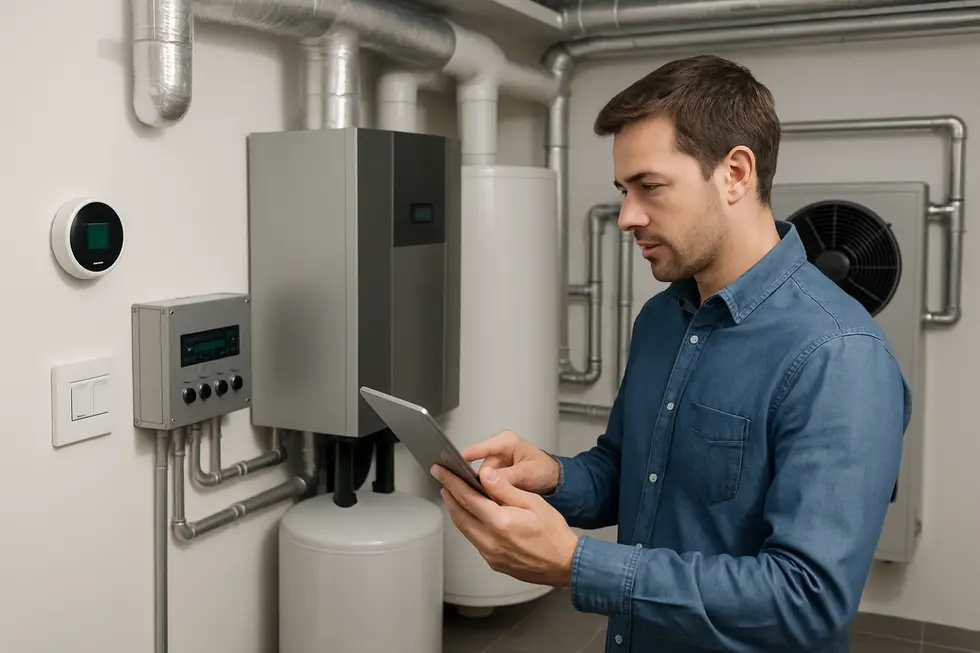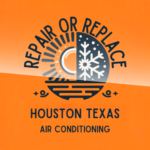As energy prices continue to climb, homeowners are seeking smarter, more efficient solutions for climate control. Energy-efficient HVAC systems have gained significant popularity by offering substantial savings and environmental benefits. These systems incorporate innovative technologies that optimize performance while reducing energy consumption, making them an attractive investment for those eager to lower utility bills. This article explores the rise of energy-efficient HVAC systems, their technological advancements, and essential considerations for homeowners aiming to upgrade their comfort systems in an energy-conscious world.
Technological Innovations Driving HVAC Efficiency

Modern HVAC systems have undergone significant advancements that are transforming home comfort while promoting energy efficiency. Central to these innovations are smart thermostats, inverter compressors, and zoning components, each playing a vital role in reducing energy consumption and enhancing control over indoor environments.
Smart thermostats exemplify the integration of intelligence into HVAC systems. Equipped with Wi-Fi connectivity and learning algorithms, they monitor occupancy patterns and adapt heating and cooling schedules accordingly. This precision prevents unnecessary energy use, ensuring that homeowners only use energy when needed. With user-friendly interfaces, residents can adjust temperatures remotely, providing convenience and better energy management.
Inverter compressors represent a leap forward in compressor technology. Unlike traditional fixed-speed units that operate in an on/off manner, inverter systems modulate compressor speed based on demand. This modulation results in more consistent indoor temperatures, reduced energy consumption, and less wear and tear on equipment. Homes equipped with inverter-driven HVAC units typically experience significant savings in operational costs due to their superior efficiency.
Zoning technology further refines energy management by allowing homeowners to divide their home into distinct areas or zones. Each zone can be heated or cooled independently through designated dampers and thermostats. By tailoring climate control to specific spaces, homeowners avoid wasting energy in unoccupied or less frequently used areas. For example, bedrooms can be cooled at night without over-conditioning the living room, leading to substantial energy savings.
The combination of these advanced features creates a highly responsive and efficient HVAC system. Within a contemporary home, these systems are often installed in bright, modern utility rooms—surrounded by visible ducts, sleek control panels, and energy-saving devices—that blend seamlessly with the home’s aesthetic. Homeowners can see their investment in energy efficiency firsthand, adjusting settings on intuitive interfaces while watching their utility costs decrease.
Furthermore, these technological innovations are supported by smart home integration, allowing seamless coordination with other devices such as lights and security systems. This interconnectedness facilitates advanced scheduling and optimization, ensuring the system operates at peak efficiency without manual intervention.
By adopting these cutting-edge solutions, homeowners can not only improve their comfort but also contribute to sustainability efforts. Reduced energy consumption translates into lower utility bills and a smaller carbon footprint. As energy-efficient HVAC systems continue evolving, they promise an ongoing revolution in home climate control—delivering comfort and savings in equal measure.
For a deeper understanding of how these advancements fit within broader HVAC maintenance and installation strategies, exploring resources like this guide can provide valuable insights into the latest industry standards and practices.
Benefits and Considerations for Homeowners

Adopting energy-efficient HVAC systems offers homeowners tangible benefits that extend beyond simple cost savings. One of the most immediate advantages is the potential reduction in utility bills, which becomes increasingly relevant as energy prices continue to rise. By investing in advanced HVAC technology, households can enjoy consistent indoor comfort without the expense of excessive energy consumption. This improved efficiency often translates into better climate control, where temperatures are more evenly distributed and maintained at desirable levels, enhancing overall comfort for family members.
Moreover, energy-efficient systems contribute positively to environmental sustainability. They leverage greener technologies and optimize energy use, resulting in fewer greenhouse gas emissions and a smaller carbon footprint. For environmentally conscious homeowners, this aligns with their values while also fostering a healthier living space.
However, it is essential for homeowners to weigh certain considerations before upgrading. Initial installation costs for advanced HVAC systems can be higher than traditional units, making budgeting an important step. Proper sizing and installation are critical to ensure maximum efficiency; over- or under-powered systems may negate some of the energy savings. Consulting with qualified professionals can help in selecting the right system tailored to the home’s specifics, avoiding future costly repairs or inefficiencies.
Another important consideration involves ongoing maintenance. Although energy-efficient HVAC systems typically require less energy, they often incorporate sophisticated components like smart thermostats and zoning technology, which need regular checks to operate optimally. Homeowners should be prepared for periodic maintenance to sustain performance and efficiency.
The decision to upgrade also involves evaluating long-term savings against upfront costs. While the initial investment may seem significant, the reduction in monthly utility bills and potential incentives or rebates for energy-efficient upgrades often counterbalance this expense. For further guidance on making informed choices, homeowners can explore resources like recent articles on seasonal HVAC pricing trends, which highlight the importance of timing in system upgrades see this informative resource.
Ultimately, the transition to energy-efficient HVAC systems represents a strategic move toward a more cost-effective and environmentally responsible home. By understanding both the benefits and considerations, homeowners can better navigate their options and achieve a balance of comfort, savings, and sustainability.
Final words
Embracing energy-efficient HVAC systems is increasingly vital for homeowners looking to reduce costs while enhancing comfort. With technological advances in smart controls, inverter technology, and zoning, these systems offer tangible savings and environmental benefits. Upgrading to such systems will not only improve indoor quality but also contribute to a sustainable future, making them an essential investment for modern homes seeking efficiency and reliability.
Ensure your home is energy-efficient with expert HVAC solutions. Contact Houston Texas Air Conditioning today for reliable repairs, installation, and maintenance.
Learn more: https://houstontexasairconditioning.com/index.html#schedule_form
About us
Houston AC Repair & Installation Experts is a top-rated HVAC service provider in Houston. Our licensed, insured technicians offer flat-rate pricing, reliable service, and cost-saving tune-ups. As an A+ BBB-rated company, we’re dedicated to delivering efficient, affordable solutions for your home comfort needs, including repair, installation, and maintenance of energy-efficient HVAC systems.
